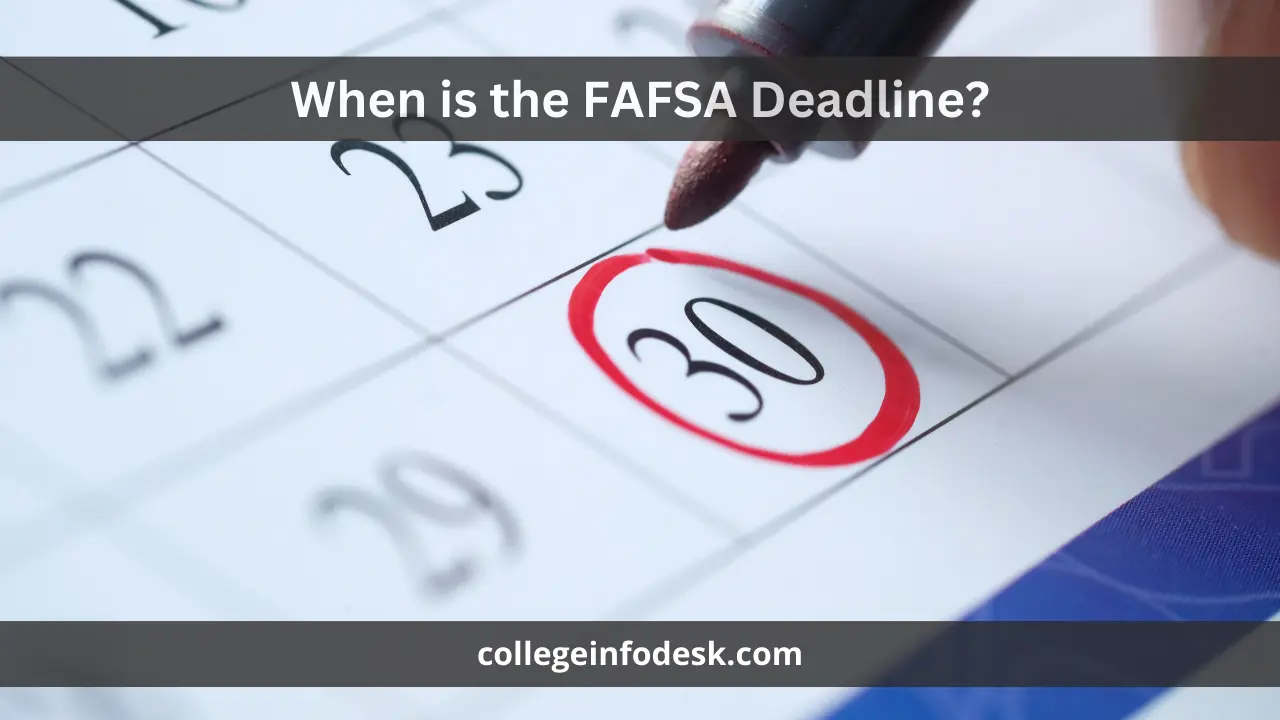Are you a high school or college student navigating the intricacies of financial aid through the FAFSA? If so, meeting the appropriate FAFSA deadline is crucial. Financial aid processes are best approached with timeliness in mind, affording you ample opportunity to secure a robust financial aid package and make informed decisions.
Early action in completing FAFSA requirements is beneficial for several reasons. Not only does it provide sufficient time for the processing of your application, but it also enhances your eligibility for certain types of financial aid, such as the Federal SEOG award, which may be contingent upon the timing of your application.
Keep in mind that financial aid applications must be submitted annually, applicable to both incoming freshmen and returning students. Therefore, understanding and adhering to these deadlines is essential for maintaining financial support throughout your academic journey.
Also read How to Add More Schools to FAFSA 2024-2025
Key Federal FAFSA Deadlines for 2024-2025
For students gearing up to navigate the financial aid process, understanding the critical deadlines for the 2024-2025 FAFSA is paramount. Here are the three significant deadlines to mark on your calendar:
- FAFSA Opens: December 31, 2023
- The FAFSA application becomes available on this date, allowing students to initiate the financial aid process for the upcoming academic year.
- FAFSA Closes: June 30, 2025
- This deadline marks the last day for students to submit their FAFSA application for the 2024-2025 academic year. Missing this deadline could jeopardize your eligibility for federal financial aid.
- FAFSA Corrections: September 14, 2025
- If you need to make corrections to your FAFSA information after submission, you have until September 14, 2025, to do so. It’s crucial to review your application carefully and rectify any errors or updates promptly.
Mark these deadlines on your calendar and stay proactive in completing your FAFSA requirements to secure the financial aid you need for your educational journey.
Updates and Expectations for the 2024-2025 FAFSA
The rollout of the 2024-2025 FAFSA has been accompanied by delays and challenges due to the introduction of a simplified form aimed at enhancing the application process. Students and parents encountering difficulties with the new FAFSA are encouraged to seek assistance from school counselors or financial aid offices.
To stay informed about ongoing issues and resolutions regarding the FAFSA, individuals can visit the Federal Student Aid website for updates and guidance. Given the delays, colleges are anticipated to issue financial aid award packages from late March to early April. It’s advisable for students to monitor their college’s website for the latest information on financial aid and enrollment deadlines, as these may have been affected by the FAFSA rollout issues.
Looking ahead, the 2025-2026 FAFSA is projected to revert to its normal schedule, with an anticipated opening date of October 1, 2024. Stay informed and prepared for upcoming financial aid processes to ensure a smooth application experience.
Also see Pell Grant: A Comprehensive Guide
What to Do If You Miss the FAFSA Deadline: Your Options Explained
If you’ve missed the FAFSA deadline or state financial aid cutoff, swift action is crucial. Reach out to your college’s financial aid office immediately to explore potential solutions. Here’s what you can do if you find yourself in this situation:
- Appeal for Financial Aid: If it’s not too late, consider appealing for financial aid and merit scholarships. Your college’s financial aid office can provide guidance on the appeal process, and you may need to submit a formal appeal letter.
- Explore Scholarship Opportunities: Scholarships offer free money that doesn’t require repayment. While highly competitive, scholarships can help cover educational expenses. Be aware of renewal terms and eligibility criteria for ongoing funding.
- Consider a Gap Year: A gap year allows you to defer your college acceptance for a year, ensuring you meet financial aid deadlines and qualify for appropriate aid. While not all colleges permit gap years, they can provide valuable experiences.
- Investigate Alternative Financing: Income Share Agreements (ISAs) or student loans are options if you miss the FAFSA deadline. While predictable, they require repayment and should be used judiciously. Evaluate repayment plans and debt implications before committing.
Each option has its pros and cons, so carefully consider your circumstances and goals before making a decision. Planning ahead and seeking assistance from your college’s financial aid office can help navigate these challenges effectively.
Conclusion
Missing the FAFSA deadline can be a setback, but it’s not the end of the road. By taking proactive steps and exploring alternative options, you can still pursue your college education and secure the financial support you need. Whether through scholarships, a gap year, or alternative financing, there are paths forward. Remember to stay informed, seek guidance from your college’s financial aid office, and make decisions that align with your long-term goals and financial well-being. With determination and resourcefulness, you can overcome this obstacle and embark on your educational journey with confidence.
